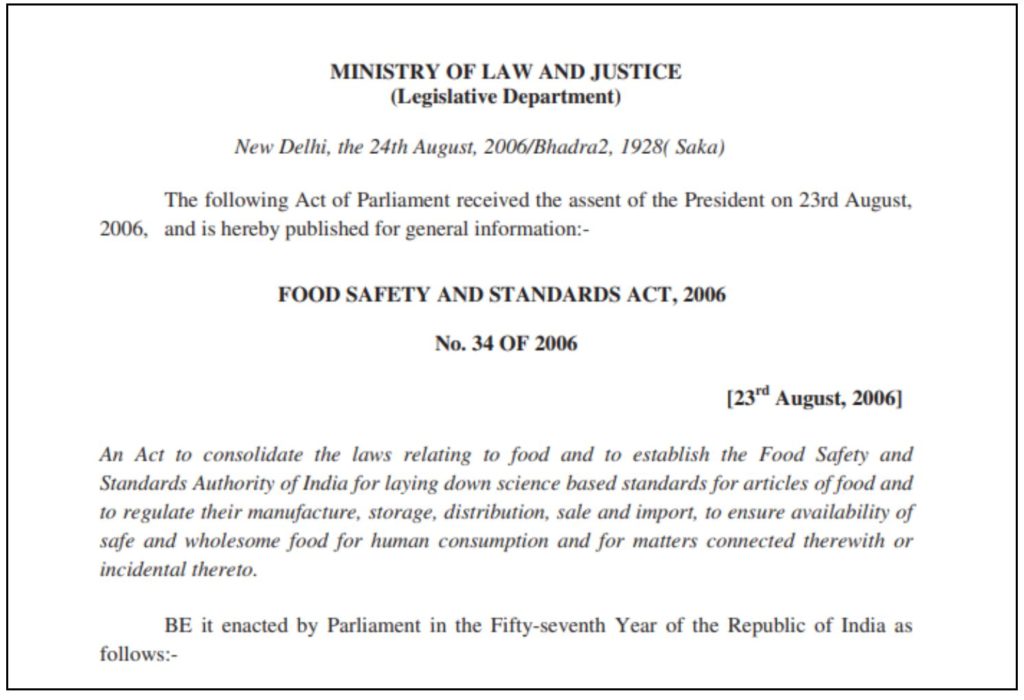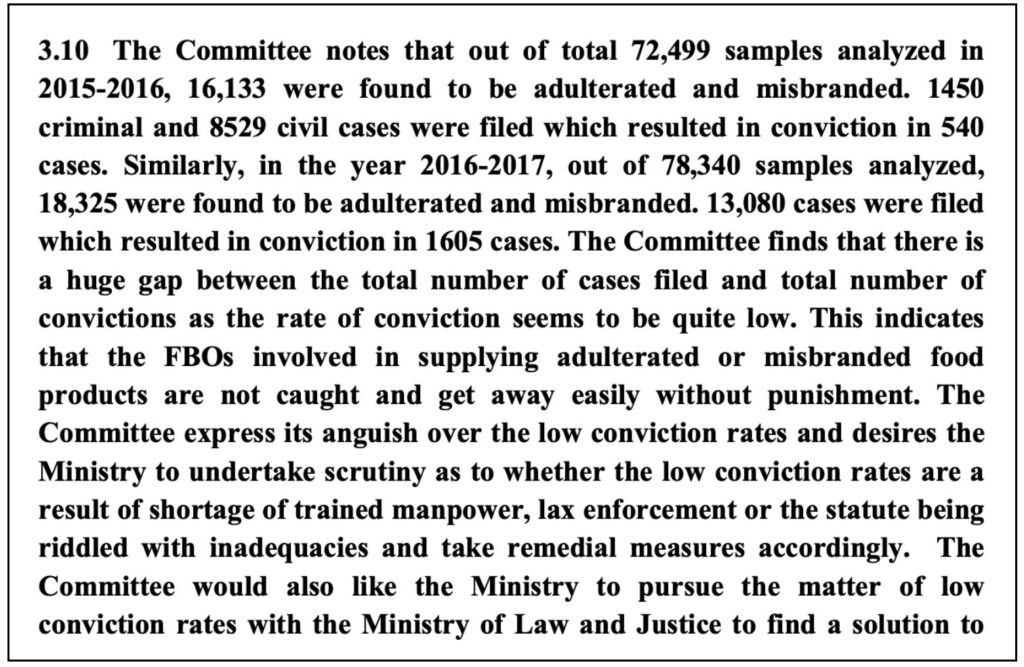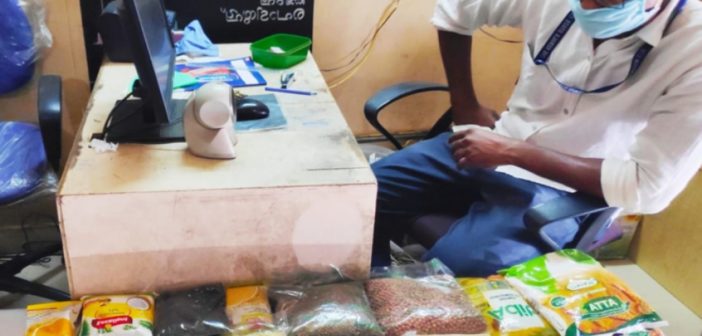As per the data shared by the government in the Lok Sabha, 47.5% of the cases registered in the country between 2015-16 & 2019-20 for food safety & standards violations were registered in Uttar Pradesh alone. The conviction rate in such cases continues to be very low at less than 15%.
With the proliferation of food joints & home-chefs entering the Indian food industry, it has become more important than ever to conduct regular inspections and ensure strict adherence to the rules and regulations pertaining to the hygiene and quality of food being served. Consuming poor quality food & food prepared in unhygienic conditions can sometimes prove to be fatal. Hence, it is of utmost importance that the government strictly monitors the industry. Besides the quality of food being served in food outlets, the presence of adulterants is also to be checked regularly.
FSSAI set up to monitor the quality of food and hygiene
The Ministry of Health & Family Welfare established the Food Safety and Security Authority of India (FSSAI) under the Food Safety and Security Act, 2006 (FSS) consolidating all the erstwhile laws relating to food, in an effort to regulate the science-based standards of food and for manufacturing, packing, storage, distribution, import, and sale. This is to ensure good quality food for human consumption. The Act mandates maintenance of hygienic conditions in and around manufacturing premises has provisions for assessment and management of risk factors to human health in a scientific manner.

State governments implement the provisions under the Act
Standards for food products and additives and quality parameters have been prescribed in the Food Safety and Standards (Food Product Standards and Food Additives) Regulations, 2011. It is mandatory that all Food Business Operators (FBO) or the persons in the business of selling food comply with the standards given in these regulations. State governments have been entrusted with the responsibilities of implementation and enforcement of the provisions under the FSS Act and the FSS rules.
State Food Safety Officers may conduct inspection at any food outlet
As per the existing regulations, State Food Safety Officers must regularly conduct surveillance, monitoring, and inspection activities to check for compliance with the provisions of the act. For this, they may draw samples of food items from an outlet and send them to the laboratories which are recognised by FSSAI for analysis. In cases where samples are found to be non-conforming to the provisions of the Act and the Rules and Regulations made under the act, the action is taken against the FBO under the penal provisions of the FSS Act. For instance, if a person sells unsafe food which results in death, they are liable for imprisonment ranging from 7 years to life imprisonment, in addition to a penalty of Rs. 10 Lakhs.
Number of food samples analysed has increased by more than 60% in 5 years
As per data shared by the government recently, the number of samples analysed across the country has increased by nearly 64% in the last five years. Over 72,499 samples were analysed in 2015-16, of which about 22% of the samples or 16,133 samples, were found to be non-conforming with the prescribed standards. The percentage of samples identified to be non-conforming increased to nearly 28.6% in 2018-19 when the number of samples tested was above one lakh and about thirty thousand were non-conforming. In 2019-20, though over 1.18 lakh samples were tested, the percentage of samples which were non-conforming was about 25%.
More than half the samples analysed in India are from four states
Of the 1.18 lakh odd samples tested in 2019-20, nearly 18% of the samples were from Uttar Pradesh. While more than 20,000 samples analysed from UP, more than 15,000 samples were analysed from Madhya Pradesh, and more than 10,000 samples each from Gujarat and Tamil Nadu were analysed in 2019-20. These four states alone accounted for 51% of all the samples analysed in India in 2019-20. The number of samples being analysed varies across states. With more than 10,000 samples being analysed in each of the last five years, UP has been the state which has conducted the most sample analysis in each of these years. The same state has also reported the highest percentage of samples identified to be non-conforming to the government laid standards or adulterated- from 42% in 2016-17 to about 59% in 2019-20.
All the states except Maharashtra and Andhra Pradesh have increased the scale of sample analysis. During the five-year period, the percentage of samples found to be non-conforming has reduced gradually in the states of Telangana, Kerala, Karnataka, and Chhattisgarh. The states of Rajasthan, Jharkhand, and Jammu, and Kashmir have consistently reported more than 25% of the samples to be non-conforming. Punjab and Odisha have also reported more than 20% of the samples to be non-conforming throughout the five-year period from 2015-16 to 2019-20.
48% of the cases registered in five years under FSS Act were in UP
A total of 91,636 cases, including civil and criminal cases, have been registered in the country for violating the FSSAI’s standards in the last five years between 2015-16 & 2019-20. These cases have been a result of the sample analysis and other inspections. Close to half of all these cases which is 43,517 or 47.5% were registered in UP alone. More than 5000 cases each were registered in the states of Tamil Nadu, Maharashtra, Punjab, and Madhya Pradesh and these states together account for nearly 29% of the cases registered in the last five years.
Rs. 59.4 crores penalties raised in 2019-20
The penal provisions under the FSS act and relevant regulations include both imprisonments as well as penalties. In 2019-20, penalties totaling Rs. 59.4 crores were raised as per the data shared by the government. Prior to this, the penalties raised increased from Rs.17 crores (in 2016-17) to Rs. 32.57 crores in (2018-19).
Poor conviction rate helps violators easily get away
Around 8000 cases resulted in convictions for FSSAI standards violation in the four years between 2015-16 and 2018-19. In other words, out of the 59,453 cases registered in these four years, only a fraction has resulted in conviction indicating a low conviction rate. The low conviction rate has also been highlighted in a parliamentary standing committee report on the functioning of FSSAI tabled in 2018. The report observes that this gap between cases registered and conviction indicates that the FBOs involved in supplying adulterated or misbranded food products are not caught and get away easily without punishment. The committee asked the concerned ministry to scrutinize the reason behind the poor conviction and take remedial measures.

Lack of trained manpower is a hindrance
Some of the major problems faced by FSSAI are financial constraints, lack of equipment in laboratories, and shortage of skilled manpower, according to the aforementioned standing committee report. It was recommended that trained and competent officers with expertise in the subject of food science be employed. However, there is an acute shortage of regulatory staff with the state governments to implement the FSS Act. Though there was a requirement of 4850 Food Safety Officers (FSOs), there were only 3130 FSOs in the country at the time of tabling the report in 2018. Furthermore, the committee also recommended the restructuring of the FSSAI to make it competent to meet the evolving challenges in this space.
This has also been highlighted in a CAG report in 2017 which observed that the shortfall in FSOs ranged from 33% to 99% in all the states, in 2016. The shortfall was more than 90% in 12 states. The report observed that there was a shortage of not just the FSOs, but even other staff required for the functioning of the FSS Act.
Amendment to FSS Act has been proposed
Currently, the government has proposed to amend the Food Safety and Standards Act, 2006. The Ministry of Health has invited public comments through a Public Notice on amendment proposal which seeks to revamp the functioning of FSSAI. The proposed amendments seek to include animal feed in the FSSAI jurisdiction and monitoring would also be applicable to exports. The amendments also seek to increase the quantum of penalties for violations.
Featured Image: Food Safety & Standards violations



